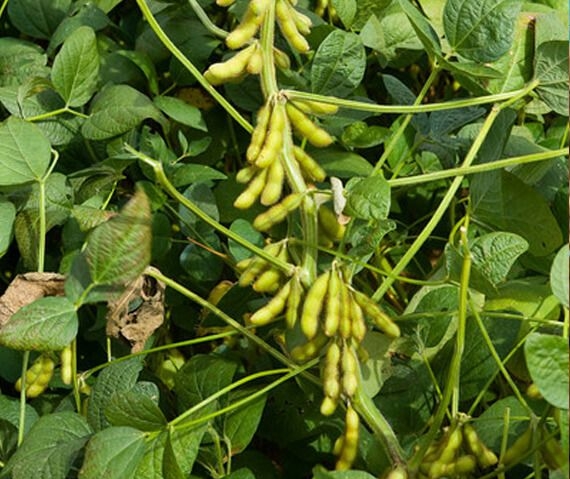Soybean prices are falling, despite a downgrade in Brazil's crop forecast

Refinitiv Commodities Research experts, against the background of an abnormal drought and a delay in sowing in the central-western and southeastern regions of Brazil, lowered the forecast for soybean production in the country in 2023/24 MR by 4.1 million tons to 159.3 million tons, which will exceed last year's 154, 6 million tons. We will remind that in November the USDA estimated the soybean harvest in Brazil at 163 million tons, and the Conab agency estimated it at 162.4 million tons.
The delay in sowing has slowed down the development of plants, which will have a negative effect on the productivity of soybeans. In addition, accordingly, the sowing of second-crop corn will be delayed, the forecast for the production of which in 2023/24 MR has been reduced by 3.9 million tons to 121.3 million tons (131.8 million tons in 2022/23 MR).
But January soybean futures on the Chicago Stock Exchange have not yet reacted to forecasts of a production cut and during the last 3 sessions fell by 3.7% to $492.4/t (-3.3% for the week and +1, 5% for the month) against the background of a sharp collapse in oil prices and rainfall forecasts in central Brazil.
They are supported by favorable weather in Argentina and increased purchases by China of US soybeans, especially against the background of restrained sales by Brazilian farmers, who are worried about a possible reduction in the harvest.
According to traders, the premium for Brazilian soybeans rose for the week compared to March soybean futures in Chicago from $18-20/t to $45-50/t.
Showers are forecast to spread from southern Brazil to central regions this week, easing the heat and improving the condition of heat-stressed crops, but the rainy season is yet to start with heavy rains.
Analysts at the Buenos Aires Grain Exchange raised their forecast for the country's 2023/24 soybean area from 17.1 million hectares to 17.3 million hectares thanks to late October rains, but lowered their estimates for wheat and corn crops. Currently, 18% of the planned area is sown with soybeans in Argentina.


